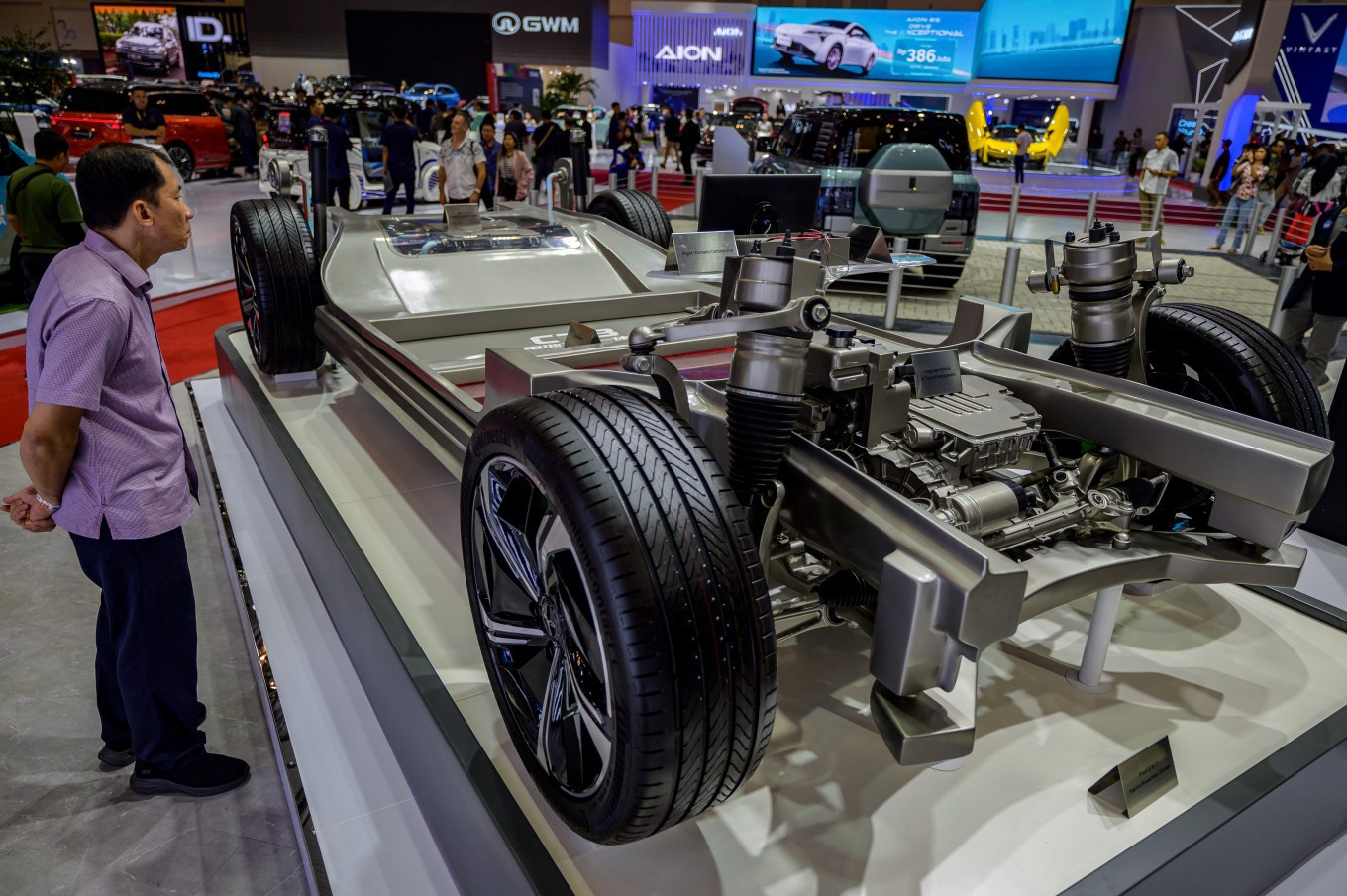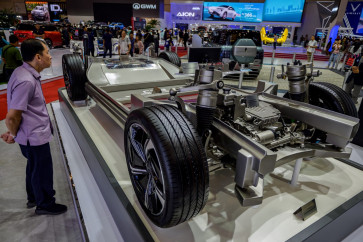Popular Reads
Top Results
Can't find what you're looking for?
View all search resultsPopular Reads
Top Results
Can't find what you're looking for?
View all search resultsAnalysis: RI to end CBU EV import incentives, domestic manufacturing boost
Change text size
Gift Premium Articles
to Anyone
I
ndonesia's Industry Ministry will phase out incentives for fully built-up (CBU) imports of battery electric vehicles (BEVs) by the end of 2025, shifting the policy focus toward local production starting in 2026. Automakers such as BYD and Geely, which have pledged investments totaling Rp15.52 trillion (US$936.62 million), are required to begin assembling vehicles domestically from that year. Should they fail to meet the production requirements, the government reserves the right to claim their bank guarantees in line with the local content requirement (LCR) roadmap and investment regulations.
From January 1, 2026, to December 31, 2027, participating automakers must fulfill their commitments by producing locally the same number of vehicles they had previously imported under the CBU scheme, as stipulated in Article 4 of Investment Coordinating Board (BKPM) Regulation No. 1/2024. The locally assembled models are also required to match or exceed the technical specifications of their imported counterparts, particularly with respect to motor power and battery capacity.
To support this transition, the government has been building up the domestic EV ecosystem. Major downstreaming projects, ranging from integrated battery production hubs in Karawang to nickel refining ventures backed by state-owned firms and global partners, are intended to secure the raw materials and supply chains needed for large-scale EV production. Complementary policies, such as higher incentives for vehicles meeting local content requirements, further underscore Jakarta's ambition to anchor the EV industry within its borders.
Until now, Indonesia's EV market has relied heavily on CBU import incentives, which have made electric vehicles more affordable and accelerated adoption nationwide. Budget-friendly models have particularly benefited. The Wuling Air EV, for example, starts at around Rp240 million, putting it in the same price range as popular gasoline-powered hatchbacks like the Toyota Agya or Honda Brio, which retail between Rp180 million and Rp250 million. Similarly, the BYD Dolphin, positioned as a compact family EV, is priced at roughly Rp425 million — comparable to gasoline sedans or compact SUVs like the Toyota Vios or Honda HR-V.
This narrowing price gap has been key to convincing Indonesian consumers that EVs are a viable alternative, not only for their lower operating costs but also because the initial purchase price no longer feels prohibitive. Without the CBU import incentives, however, many of these EVs would have been priced far above gasoline-powered rivals, limiting adoption and slowing the government's electrification push.
Reliance on imports is evident in the sales data. Between January and July 2025, imports of fully built-up (CBU) cars totaled 76,755 units, up 50.7% from 50,932 units in the same period of 2024. BYD alone accounted for 39,468 of those units — and as a manufacturer focused exclusively on EVs and plug-in hybrid EVs, its dominance highlights the central role of the CBU program in shaping the early stages of Indonesia's EV market.
Still, the phaseout of CBU import incentives has been widely anticipated. Indonesia's push to build a domestic EV industry has faced delays, and skeptics doubt whether the government will meet its target of producing 600,000 EV batteries by 2030 despite the country's vast nickel reserves and ambitious downstreaming policies.



















